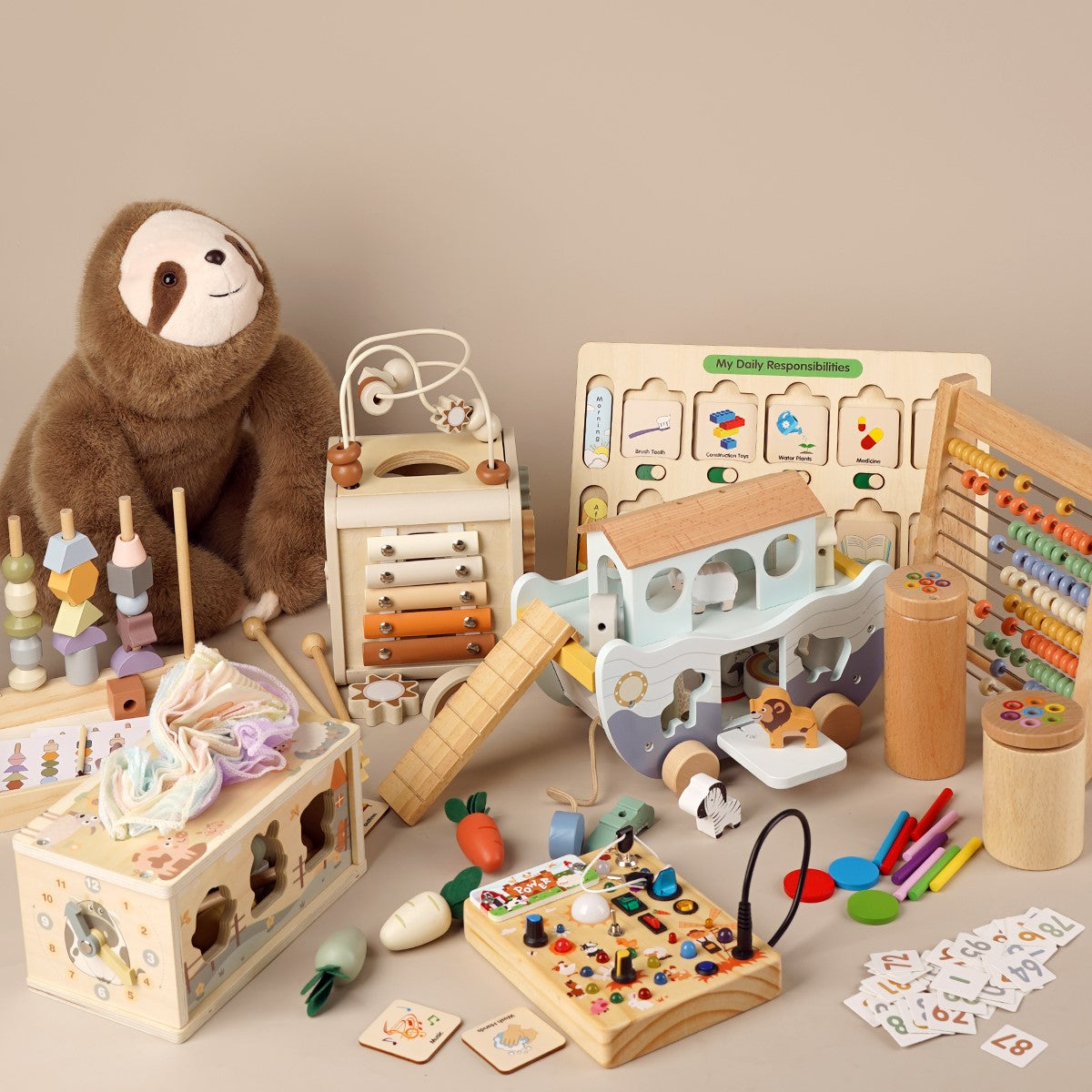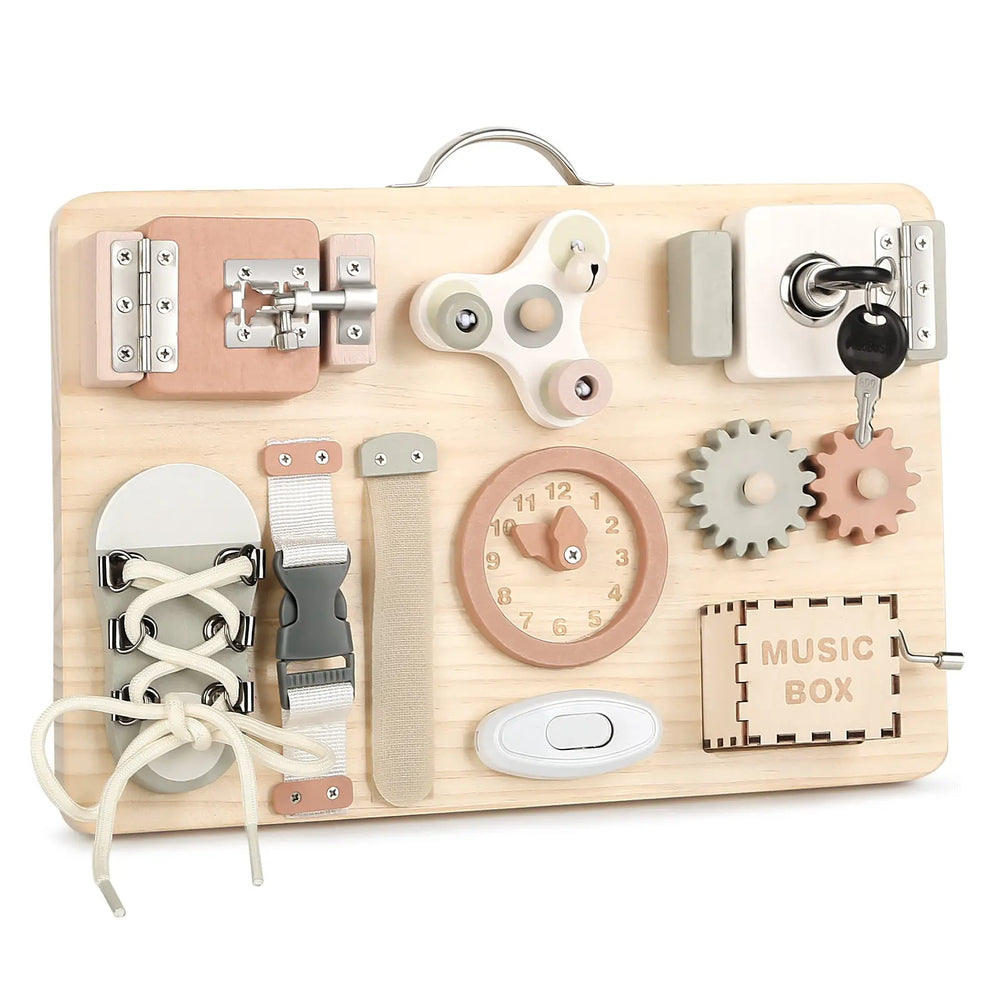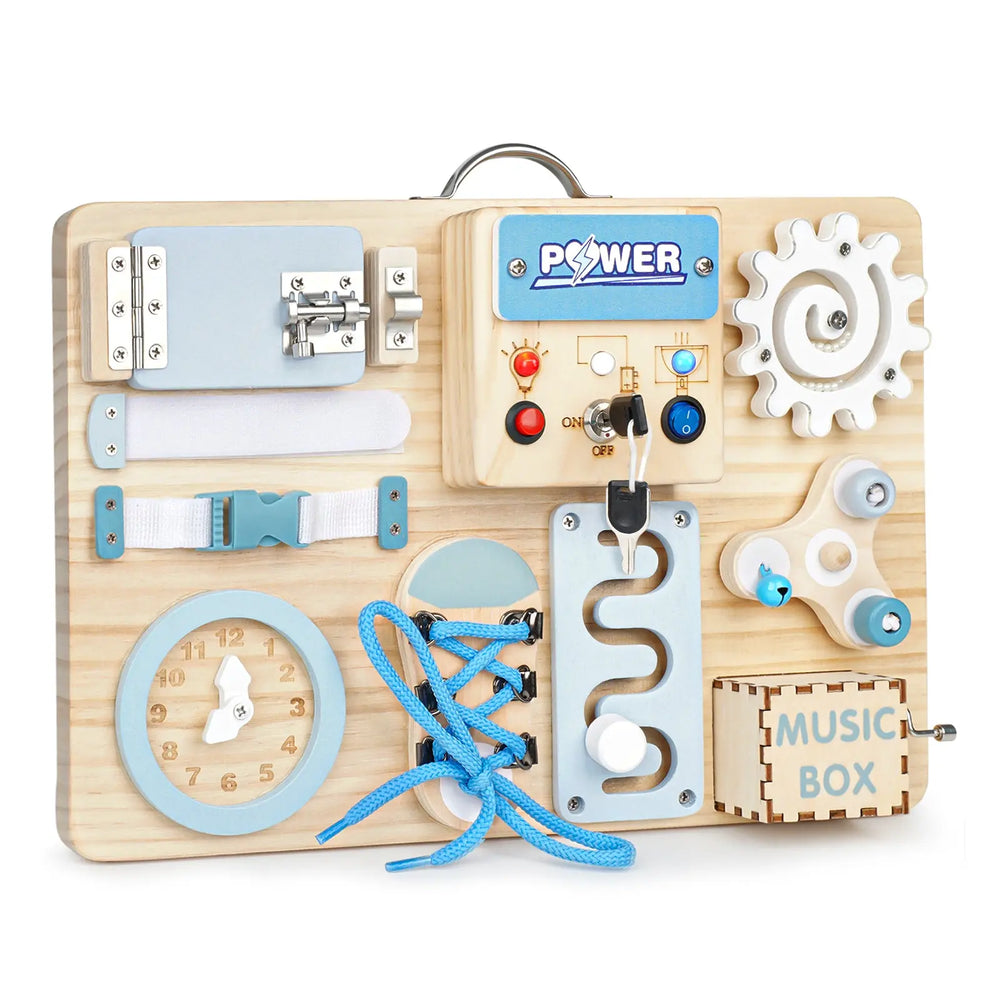Is Montessori Good for Children with ADHD?
Parents of children with ADHD often face challenges in finding the right educational environment that supports their child’s unique learning needs. Traditional classrooms, with rigid structures and constant demands for sustained attention, can be difficult for kids with ADHD. The Montessori method, with its child-centered approach, may offer a more accommodating alternative. But is Montessori truly beneficial for children with ADHD?

Understanding ADHD and Learning Challenges
Children with ADHD (Attention Deficit Hyperactivity Disorder) often struggle with:
- Focus and attention – Difficulty staying on task, especially in highly structured settings.
- Impulsivity – Acting without thinking, interrupting, or struggling with self-regulation.
- Hyperactivity – Excessive movement and restlessness.
Traditional schools may inadvertently exacerbate these challenges by enforcing strict schedules, frequent transitions, and passive learning methods.
How Montessori Education Differs
The Montessori method, developed by Dr. Maria Montessori, emphasizes:
- Self-directed learning – Children choose activities based on interest, fostering engagement.
- Hands-on materials – Concrete learning tools help maintain focus and reduce distractions.
- Flexible structure – Fewer rigid time constraints allow children to work at their own pace.
- Movement-friendly environment – Kids can move around the classroom rather than sit still for long periods.
Benefits of Montessori for Children with ADHD
1. Personalized Learning Pace
- Children with ADHD often learn best when they can explore topics deeply without time pressure. Montessori allows them to spend extra time on tasks they enjoy while avoiding frustration from forced transitions.
2. Minimized Distractions
- Montessori classrooms are designed to be calm and orderly, with fewer visual distractions than traditional classrooms.
3. Movement and Sensory Engagement
- Kids are free to move around, use tactile materials, and engage in practical activities (like pouring, sorting, or building), which can help regulate energy levels.
4. Intrinsic Motivation
- Instead of relying on rewards or punishments, Montessori encourages self-motivation—helping ADHD children develop independence and confidence.
5. Mixed-Age Classrooms
- Older children model focus and responsibility, while younger ones benefit from peer learning without constant teacher-led instruction.
Potential Challenges
While Montessori can be a great fit, it may not work for every child with ADHD. Some considerations include:
- Need for External Structure – Some children thrive with more routine and explicit guidance than Montessori provides.
- Social Dynamics – Children who struggle with impulse control may need additional support in managing peer interactions.
- Teacher Training – Not all Montessori teachers are trained to address ADHD-specific needs, so finding an experienced educator is key.
Click here for ADHD-friendly solutions: https://joyrealtoys.com/blogs/news/montessori-busy-boards-a-great-tool-for-children-with-adhd
Tips for Parents Considering Montessori
- Visit the School – Observe how the classroom operates and whether your child responds well to the environment.
- Communicate with Teachers – Ensure they understand ADHD and can provide appropriate support.
- Combine with Other Supports – Occupational therapy, behavioral strategies, or medication (if recommended) can complement Montessori education.
For parents new to Montessori education, it's best to start with simple Montessori toys and gradually introduce learning activities.
Begin with basic sensory toys (such as texture balls or stacking cups) to help develop focus, then slowly transition to more challenging tools (like busy boards and practical life activities). This step-by-step approach allows children with ADHD to build concentration at their own pace while experiencing small successes that boost their confidence.
Why Montessori Toys Work for ADHD
Montessori toys are designed to:
- Encourage deep focus – Simple, purposeful activities hold attention better than overstimulating toys.
- Promote independence – Kids learn at their own pace without pressure.
- Develop fine motor skills – Many ADHD children struggle with coordination; these toys strengthen hand muscles.
- Provide sensory input – Tactile, movement-based play helps regulate energy levels.
Top Montessori Toys for Children with ADHD
1. Wooden Puzzles & Shape Sorters
Why they help:
- Improve problem-solving skills and patience.
- Require focused attention to match pieces correctly.
- Great for visual-spatial learning.
Best for: Ages 2-6
2. Sensory Busy Boards
Why they help:
- Filled with zippers, locks, latches, and buttons to keep hands busy.
- Teach practical life skills (dressing, turning knobs).
- Reduce fidgeting by providing tactile stimulation.
3. Balance Boards & Wobble Chairs
Why they help:
- Allow movement while seated, helping restless kids focus.
- Strengthen core muscles and proprioception (body awareness).
- Can be used for active sitting during schoolwork.
Best for: Ages 3-10
4. Bead Sequencing & Lacing Toys
Why they help:
- Improve fine motor control (important for writing).
- Require step-by-step focus, teaching patience.
- Can be calming and meditative.
Best for: Ages 3-8
5. Sandpaper Letters & Numbers
Why they help:
- Multisensory learning (touch + sight) reinforces letters/numbers.
- Helps ADHD kids who struggle with traditional memorization.
- Encourages tactile exploration while learning.
Best for: Ages 3-7
6. Practical Life Trays (Pouring, Scooping, Tweezing)
Why they help:
- Teach concentration through repetitive motions.
- Develop hand strength and coordination.
- Provide a sense of accomplishment with small tasks.
Best for: Ages 2-6
7. Sound Cylinders & Sensory Bottles
Why they help:
- Encourage auditory discrimination (matching sounds).
- Provide a calming sensory experience for overstimulated kids.
- Help with impulse control by requiring careful listening.
Best for: Ages 2-5
Why Montessori Busy Boards Are Especially Helpful for ADHD
Montessori busy boards are one of the best tools for children with ADHD because they:
- Keep hands engaged - Reduces impulsive fidgeting
- Combine multiple skills - Fine motor, problem-solving, and sensory input
- Encourage independent play - Kids can explore at their own pace
- Are screen-free - Helps reduce overstimulation
How to Choose the Best Montessori Toys for ADHD
When picking Montessori toys for a child with ADHD, consider:
- Simplicity – Avoid overcomplicated toys; focus on one skill at a time.
- Durability – Wooden, high-quality toys last longer than plastic ones.
- Engagement – Choose toys that match the child’s interests (e.g., animals, vehicles).
- Movement Options – If the child is hyperactive, include balance-based or fidget-friendly toys.
Final Thoughts
Montessori education can be an excellent option for children with ADHD, offering flexibility, hands-on learning, and a movement-friendly environment. However, success depends on the individual child’s needs and the school’s ability to accommodate them. If traditional schooling has been a struggle, exploring Montessori could be a worthwhile alternative.
Would you consider Montessori for a child with ADHD? Share your thoughts in the comments!
Maybe it will be helpful for you:
Recent Post

Buy Once, Play Longer with Joyreal Toys
“We’re tired of toys that only last a weekend.”“I want toys that gr...

Love Is Learning Together: Valentine’s Day Educational Toys by Joyreal
When we think of Valentine’s Day, our minds often drift to roses, c...

A New Year, A New Beginning: Joyreal Toys’ Wish for Every Child
A Heartfelt New Year Message from Joyreal Toys As we welcome 2026, ...

Can Montessori Wooden Toys Grow With Your Child From 1 to 4?
When Your One-Year-Old Plays for Two Minutes and Walks Away It’s a ...

Mini Piano or Drum Set — Which Is Best for Kids?
As parents, we all face the same struggle — our children spend hour...

Is Phonics-Based AAC Right for Your Nonverbal Child?
Why Nonverbal Children Need AAC Devices For many parents, finding a...

Picture-Based AAC or Phonics AAC? A Parent’s Guide
Phonics vs Picture-Based AAC: Which Communication Tool Is Right for...

How Does Music Enlightenment Work for Ages 0–3?
Why Age-Specific Music Enlightenment Matters (0–3 Years) The first...

What Age Is a Noah’s Ark Toy For?
Is a Noah’s Ark Toy Good for Toddlers (Ages 1, 2 & 3)? When par...

Why Noah’s Ark Is More Than Just a Story Toy?
When parents search for a wooden Noah’s Ark toy, they’re usually no...










